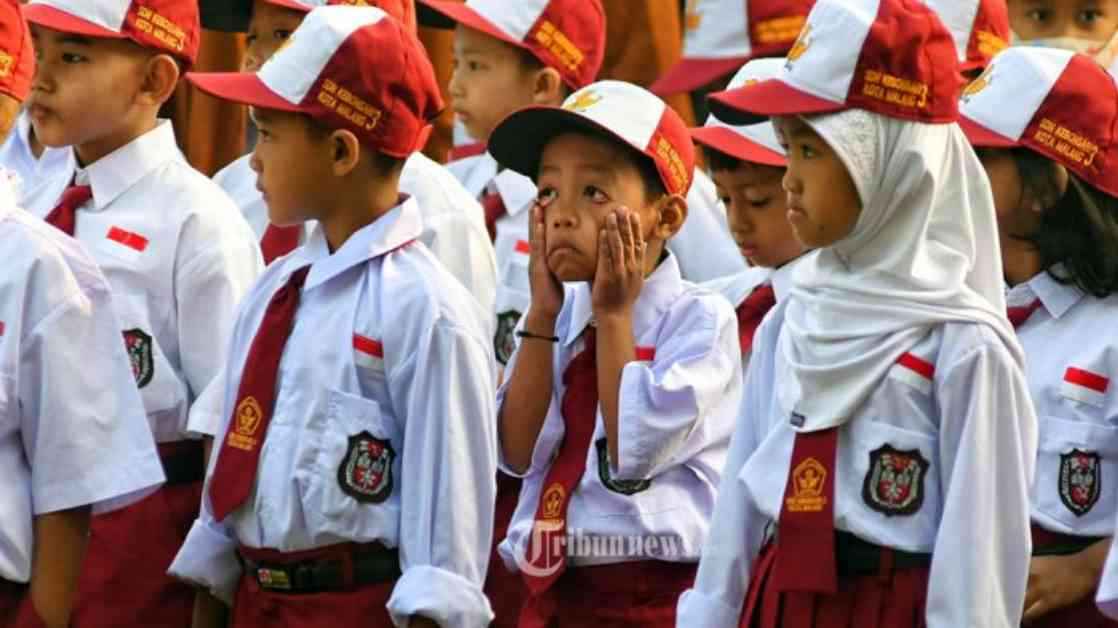As we approach Ramadan 2025, the learning schedules for students in Indonesia are set to undergo some adjustments. Despite initial plans for a one-month school break during Ramadan being postponed, students will still be attending school. However, during the holy month of Ramadan, the learning hours for students will be modified to accommodate their religious practices.
The government has authorized local authorities to formulate learning schedules during Ramadan 2025, with one such district being Klaten in Central Java. In a circular issued by the Klaten Education Office, it was stated that the duration of student learning sessions would be reduced.
For early childhood education (PAUD) students, each lesson will last for 25 minutes, with classes starting at 07:30 AM and ending at 09:30 AM from Monday to Saturday. Elementary school (SD) students will have 30-minute effective learning sessions, with classes starting at 07:30 AM and ending at different times depending on the day – ranging from 11:00 AM to 11:30 AM. Middle school (SMP) students will experience 35-minute learning sessions, starting at 07:30 AM and ending at varying times between 11:00 AM and 12:40 PM, with an earlier finish on Fridays and Saturdays.
It is essential to highlight that these adjustments to student learning hours only apply to the Klaten region. Each area has its own regulations regarding learning schedules, depending on the decisions made by local authorities.
As we delve deeper into this topic, we can’t help but wonder about the duration of learning hours for high school students (SMA/SMK) during Ramadan 2025. The impact of these changes on older students is crucial, as they navigate their academic responsibilities alongside observing the holy month.
Expert Insights on Student Learning During Ramadan 2025
To gain a more comprehensive understanding of the implications of altered learning schedules for students during Ramadan 2025, we spoke with Dr. Rina, an education expert with years of experience in curriculum development.
Dr. Rina emphasized the importance of balancing academic requirements with respect for religious practices during Ramadan. She noted that these adjustments in learning hours provide an opportunity for students to engage in meaningful educational activities while also honoring their spiritual commitments.
“Incorporating flexibility in student learning schedules during Ramadan fosters a supportive and inclusive learning environment,” Dr. Rina explained. “It allows students to manage their academic responsibilities effectively while observing the traditions of Ramadan.”
As we consider Dr. Rina’s insights, it becomes evident that the adaptations in student learning schedules go beyond mere time adjustments. They reflect a deeper commitment to nurturing holistic student development and promoting cultural sensitivity within the educational system.
Personal Reflection: Navigating Learning Hours During Ramadan
Reflecting on my own experiences as a student during Ramadan, I recall the challenges of balancing academic tasks with the spiritual practices of fasting and prayer. The shortened learning hours provided a sense of relief, allowing me to focus on my studies without compromising my religious observances.
During this sacred month, the school environment transformed into a space of understanding and empathy, where teachers and students alike acknowledged the significance of Ramadan in our lives. This shared awareness created a sense of camaraderie and mutual support, fostering a community of respect and solidarity.
As we anticipate Ramadan 2025 and the adjusted learning schedules for students, I am reminded of the importance of compassion and accommodation within educational institutions. By recognizing and honoring the religious diversity of students, we not only enhance their academic experience but also cultivate a culture of inclusivity and unity.
In conclusion, the modifications in student learning hours during Ramadan 2025 reflect a commitment to harmonizing academic pursuits with religious observances. These adjustments not only facilitate effective learning but also demonstrate a profound respect for the cultural and spiritual traditions of students. As we embark on this journey of academic and spiritual growth, let us embrace the spirit of understanding and collaboration, ensuring that every student feels valued and supported in their educational endeavors.






















